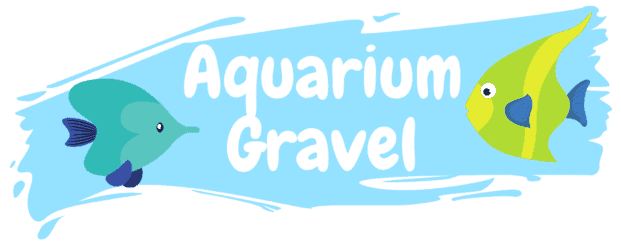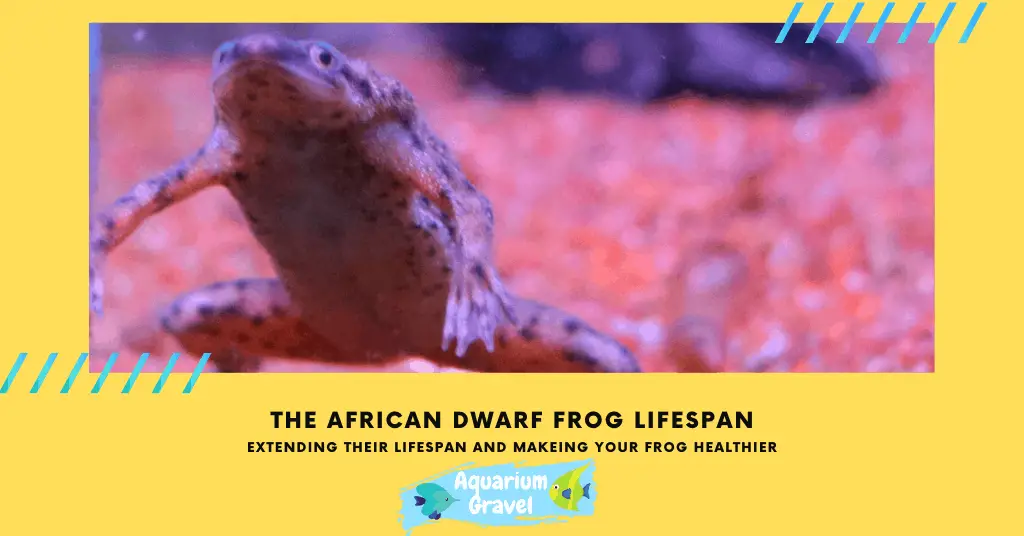Last Updated on July 11, 2021 by cmoarz
On average, an African dwarf frog should be expected to live to about 5 years of age in average water conditions. But there are ways you can improve this time, maybe even up to 20 years. continue reading below.
In this article you will learn:
- The things you can do to improve your frog’s lifespan
- How the sex of the frog can determine its longevity
- If they are better off in the wild or in your aquarium
- Should you use a filter and will it help
Let’s get started!

How to Improve African Dwarf Frog Lifespan?
Table of Contents
5 years isn’t a very long time, so you might be wondering what you can do to expand this time and extend your frog’s lifespan. Here are a few things you can do to achieve that.
Buying premium foods
Premium foods don’t need to be expensive, they just need to be well-rounded and of high quality. It’s important that you feed your African dwarf frog a well-balanced diet.
Stuffing good food down your frog’s throat isn’t going to do a whole lot on its own though, and may even be counterproductive if you’re causing your frog to get fat. Actually, one of the most important aspects aside from balance is scheduling.
Feeding your frog via schedule is very important, and it’s also important to take note of how many times per day you feed your frog.
This does 2 things. It prevents you from overfeeding your frog which will lower its life span, And it will prevent you from underfeeding your frog, which will have the same result.
It also gives you an opportunity to follow the nutrients and what you’re giving your frog on a daily basis. This is important information to keep track of if you’re trying hard to get a perfectly balanced diet of nutrients and calcium and protein.
Only buying from reputable breeders, to begin with
One of the easiest ways and the first steps to assuring you have a frog that will lave past its prime is to buy a solid healthy frog.
You should only buy from reputable breeders that have a full health history as well as a full genetic line history for the frog.
This is important so you get the best, healthiest frog and neither you nor the frog ends up regretting your choice. The last thing you want is to end up with a frog with none superior genetics caused by inbreeding or any other genetic predispositions.
A healthy frog will be a very active swimmer, There will be no glaze over his eyes and his skin should be nice and smooth. Check for abscesses and other wounds and scaring. It’s good to also ask to watch a feeding to view its interest in the food. A frog that doesn’t jump(no pun intended) at the opportunity to eat could be an indicator of ill health.
Remember, buying In-person is always best to avoid any scams or mishaps when picking out a pet. The breeder should have proof of genetic lineage, or at the very least, some sort of record indicating as such.

Good water param’s without fluctuation
Having good water parameters is of the most importance. If your African dwarf frog’s water parameters are off, then it will be very difficult to maintain a healthy environment.
It is important that you monitor the temperature of the water and keep it stable at all times. It should never go above 78 degrees Fahrenheit nor below 68 Degrees Fahrenheit.
While this can’t exactly be said for pH levels (they fluctuate often), they should still not change too much on either end of the spectrum without being monitored or checked with a test kit first. Too high an acidity level can hurt your frog as well as low alkalinity in its waters which may cause digestive problems among other things like impeding growth rates and exoskeleton strength development over time, so try staying somewhere between these two.
If there are too many fluctuations in your frog’s water parameters, it may mean that the surrounding environment is not stable and fluctuating as well. Again, this can lead to health problems like digestive issues or a weakened immune system for your African dwarf frog. It’s best if you keep these things consistent at all costs.
And of course, just like every aquarium, be sure your tank is cycling properly, nitrites, nitrates, and ammonia are where they should be and aren’t spiking. Do your regular water changes to keep nitrates down.
Avoiding any forms of stress
Your African Dwarf Frog should be kept away from anything that may cause them undue amounts of stress such as loud filters or other animals they don’t get along with (such as fish). Take note of how much noise your filter makes when running so you know what times during the day to turn it off. This will help reduce any unnecessary stress on your African dwarf frog.
Remember these frogs have insanely sensitive ears and they can hear the filter vibrating 24/7. It drives them nuts. So be sure to use an external filter with input and output tubes rather than a hanging filter.
Also, make sure your tank’s day and night cycle lights are on a timer. This just avoids some extra stress of forgetting to turn the lights off at night or on in the morning.

Do Males Or Female ADF Live Longer?
In general, males and females suffer from the same issues and will die around the same age. However, if you’ve extended the lifespan of your frog to 10-20 years by doing everything on this list and haveing perfect parameters and diet, A female should potentially live slightly longer than a male.
Do African Dwarf Frogs Die Faster In Captivity?
No, In fact, they are far better off in captivity than they would be in the wild.
It’s a scary world out there for a little froggy. Predators, humans, toxic spills, garbage, places to fall and die, drowning, bad water conditions, lack of food at some times, weather.. it all adds up to a short life span in the wild. This stuff doesn’t happen in captivity.
Do African Dwarf Frogs Live Longer with an Aquarium Filter?
Everything will live long with clean water, and these frogs are no exception. Just remember what I talked about above. In-tank filters will cause stress issues due to the vibrations. It’s best to use an external filter with pipping going into the tank instead.
You will need to remove a filter if you intend on hatching eggs or raiding tadpoles.

About
Owner of AquariumGravel.com and also owner of actual Aquarium Gravel believe it or not! ;). Setting up beautiful aquarium sceneries and habitats since I was very young. Enjoy!
- Web |
- More Posts(290)

